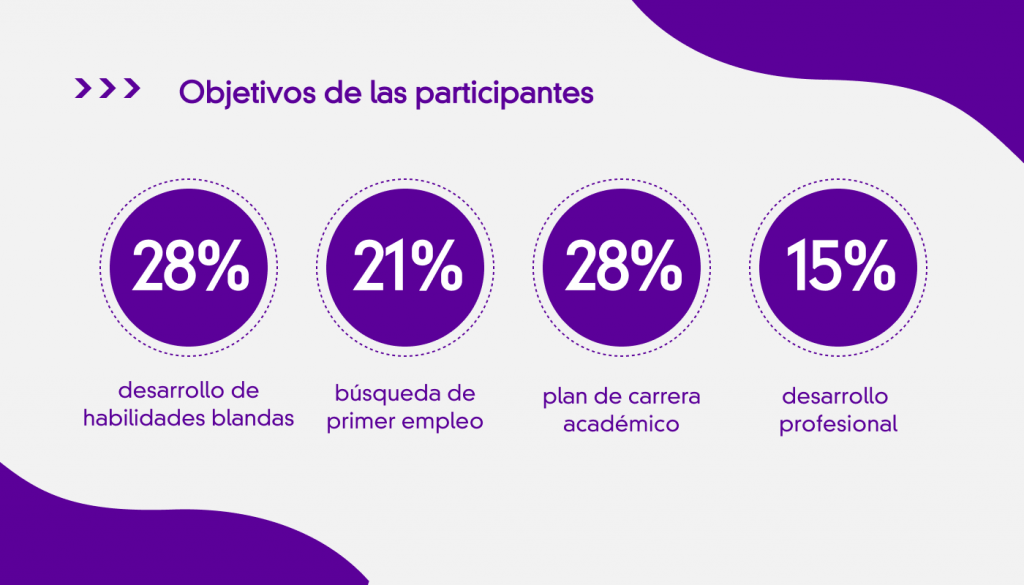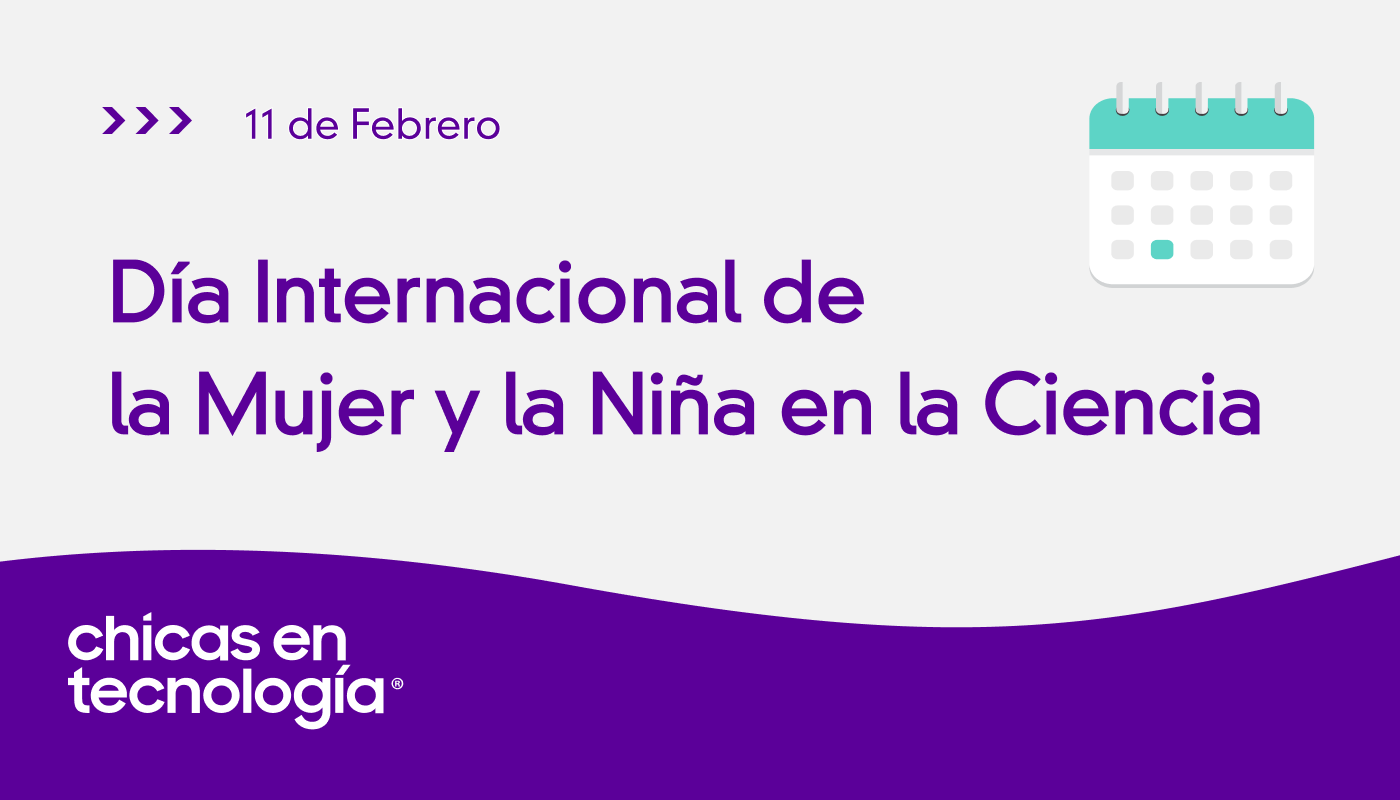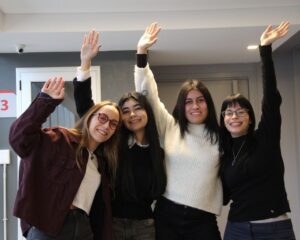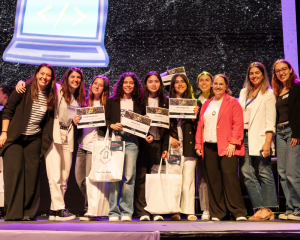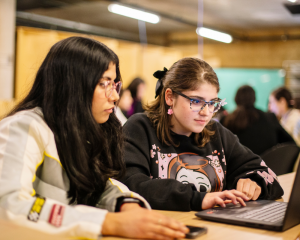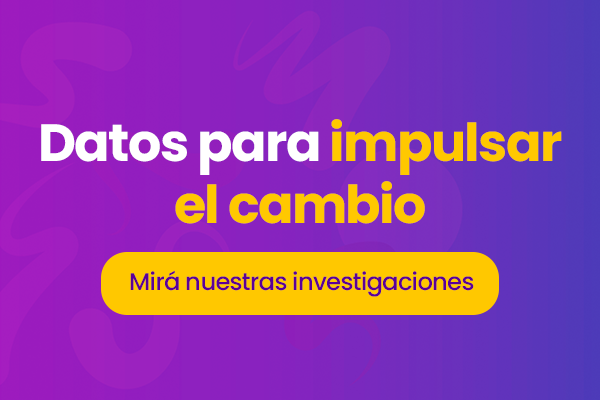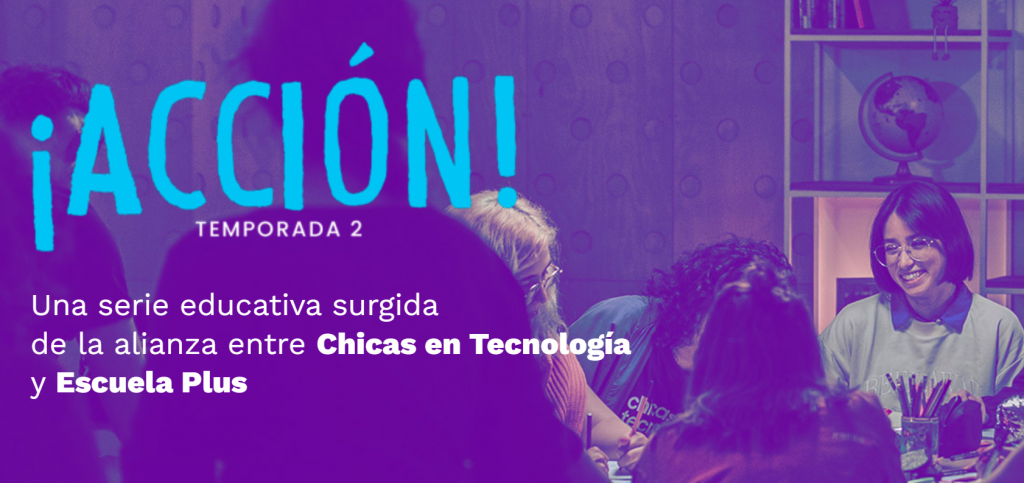International Day of Women and Girls in Science
Incorporate the perspective of girls and women so that science responds to the needs of the entire population.
Relying on the talent, innovation and experiences of people who identify with the female gender to address the challenges that affect societies.
These are some of the assumptions made visible by the International Day of Women and Girls in Science, The United Nations declared every February 11 to recognize the key role played by women and girls in all their diversity in science and technology.
In a dynamic world where technology generates new debates, challenges and transformations, there is an increasing need to build inclusive scientific and technological ecosystems. The gender gap marks a lack of equal opportunities in these fields: out of every three people engaged in science and engineering research, only one is a woman; while they represent only 22% of professionals working in the field of Artificial Intelligence, according to data from the United Nations. Moreover, they are a minority in technical and leadership positions in technology companies. The data from the latest Girls in Technology research, “An unequal career: the gender gap in Argentina's university system.”, The data show that women represent only 34% of the student body in STEM disciplines and 17% of the student body in programming. It is a right and a necessity for the development of economies and societies that women also play a leading role in the design of technological solutions and scientific development.
Encouraging girls and women to participate in scientific and technological disciplines, as well as bringing them closer to women who are developing professionally in these careers, is key for them to consider them for their future. The Girls in Technology Mentoring program, in which 50 young women from the region have already participated, is focused on the construction of these possible academic and work paths.
Exchange and learning experience
Mentoring is a support system to overcome the obstacles that may arise in professional growth and academic development. In particular, women face barriers to getting into, staying in and growing in STEM (science, technology, engineering and mathematics) disciplines.
Family and social stereotypes contribute to women associating these disciplines with male roles. In addition, there are psychological, socialization and pedagogical factors that lead girls and adolescents to underestimate their own abilities in STEM disciplines. At school age, boys and girls are usually provided with a differential education based on their gender, as well as related stimuli to become interested in these areas. This is compounded by a lack of role models for girls and young women, as there is a dearth of women in influential or decision-making roles. As they advance in their careers, female students in STEM disciplines must contend with gender-biased expectations regarding professional roles and there is a persistence of cultural stereotypes that portray ideal scientists, engineers and innovators as men. The Mentorship program seeks to enable young women from the CET Community to develop in these areas, enhance their skills and contribute their perspectives to the ecosystem. The experience provides them with support and accompaniment and encourages and guides them in the performance of their careers.
The mentoring process consists of pairing women leaders in the technology ecosystem with members of the CET Community. The mentors' experience is a direct testimony that people who identify with the female gender can also occupy decision-making roles and grow in careers that shape the present and future. CET Community participants are between the ages of 16 and 24 and are in the stages of growing and planning their next academic and professional steps or are in the midst of developing their organizational, communication and interpersonal skills.
As part of the program, the young women participated in a detailed process of individual interviews to learn about their profiles, objectives and expectations. The same process was carried out with the mentors, professional women from NCR, in order to establish the best matches based on their interests, experiences and knowledge.
Personal challenges, project development and possible academic and professional paths were the main topics addressed in the virtual mentoring sessions in which the pairs worked together. The mentees were the ones who proposed the main objectives of the process, and together with the mentors established an action plan.
